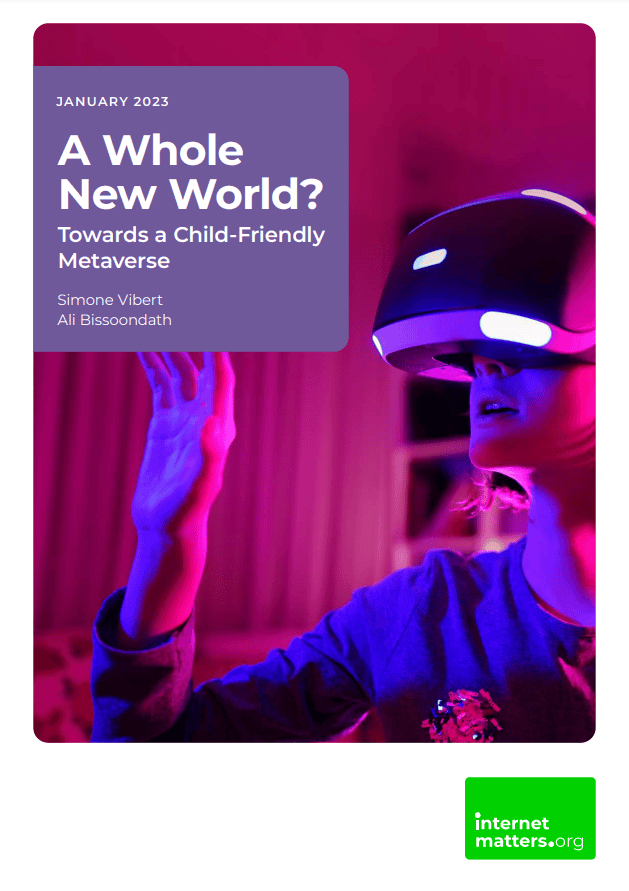Ever since its conception, the metaverse has proven itself to be contentious, with no single definition accepted among industry and policymakers — yet it continues to receive ever increasing amounts of investment of time and resources.
New survey findings of parents and children on the metaverse, released today by Internet Matters, reveals that UK families face being left behind despite the hype surrounding the developing technology.
Nearly half of parents (41%) say they don’t know much, or anything, about the metaverse*. An even greater proportion of children (53%) say the same.
Overall, just 33% of parents and 15% of children say they know a little or a lot about the metaverse and feel confident explaining it.
With nearly four out of ten (37%) of parents saying their child uses the metaverse, and almost one in five (17%) using a VR headset in an average month, Internet Matters has launched a report which calls for greater consideration from the government and industry of children’s needs around the issues.
The report looks to gauge how far parents and children in the UK today are familiar with the concept of the metaverse and spark much-needed conversations about the opportunities and risks associated with it.
While similar proportions of parents and children identify the benefits of the metaverse, children are much less likely than parents to see the risks, which is why parental involvement is crucial.
Children are much less likely to be concerned by the metaverse, with 6 in 10 identifying one concern and just 14% identifying three. Their most common concern is being spoken to by strangers (selected by 31%) followed by seeing things that upset them (24%), cyberbullying (23%) and worries about not being in the real world (23%).
The report shows there is a clear mismatch between parents and children — children don’t see the risks but their parents do. And whilst families recognise the potential of the metaverse, some respondents display a lack of trust or confidence in companies at the forefront of its development, raising serious questions about how the metaverse is being built and governed in a way that meets their needs. Technology companies, Government and regulators need to work now to ensure that the metaverse is designed from the outset with children’s needs in mind and to support parents.
The report also raises questions about the UK’s Online Safety Bill. It is a landmark piece of legislation which is set to make technology companies more accountable for the safety and wellbeing of their users, especially children. However, while the Bill is the product of years of extensive development and consultation, it has been designed in a time when the metaverse is still nascent technology. Questions have therefore been raised as to how effectively it will apply to metaverse platforms.
While the metaverse has the potential to revolutionise many aspects of childhood and family life, there is a risk that children and parents are being left behind as the race to develop the metaverse continues.






